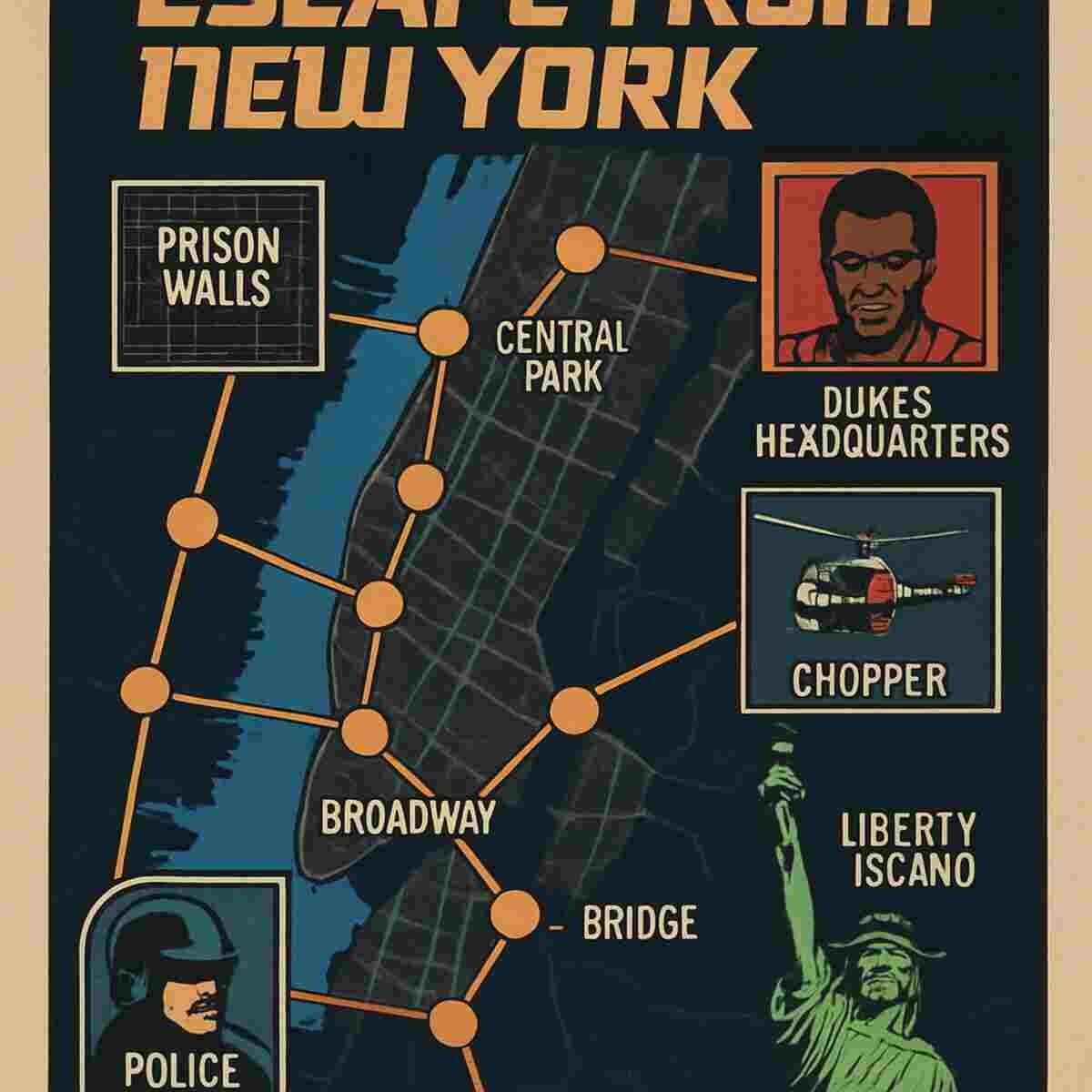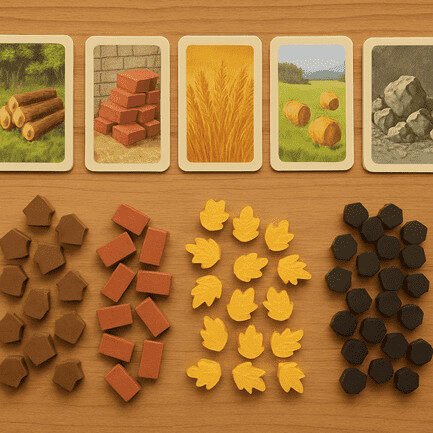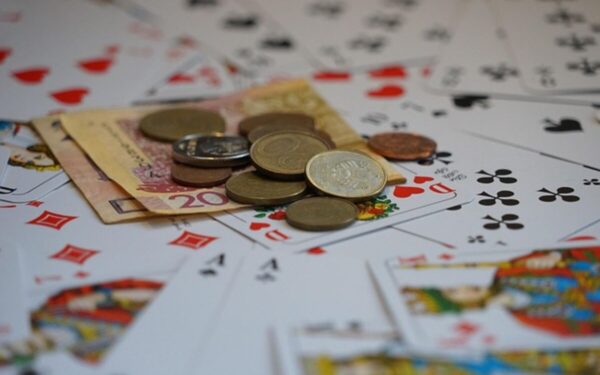Strategies for Winning Escape from New York

Hey there, fellow escape artist! Ready to outsmart the Big Apple and emerge victorious in the thrilling board game, “Escape from New York”? Whether you’re a newbie or a seasoned strategist, this guide is packed with tips and tricks to help you navigate the chaos and claim your win. Let’s dive in and turn those complex game moves into simple, winning steps! Check out ATLAS189 to know more
First things first, let’s get familiar with the basics of the game. “Escape from New York” is all about strategic planning and quick thinking. The game is set in a dystopian New York City, where your goal is to complete missions and escape the city before time runs out or you get caught.
Know Your Characters
Each character in the game has unique abilities. Whether you’re playing as Snake Plissken or another gritty survivor, understanding your character’s strengths can give you an edge. For instance, Snake’s stealth abilities are perfect for avoiding trouble, while others might excel in combat or negotiation.
Character Strengths
Every character brings something different to the table. Understanding these unique traits is crucial. For example, some characters might have superior negotiation skills, allowing them to gain more favorable terms in alliances. Others might have enhanced speed, making them ideal for quick escapes or surprise attacks. Learning these nuances will help you choose the right character for your play style.
Character Weaknesses
Just as important as strengths are the weaknesses. Recognizing these can prevent you from making costly mistakes. Some characters may be weaker in combat or have limited resource management skills. By understanding these limitations, you can plan your moves to avoid situations where your character might falter.
Synergies Between Characters
Sometimes, the best strategy involves teamwork. Certain characters’ abilities complement each other, creating powerful synergies. Identifying these can enhance your team’s overall performance. For instance, pairing a stealth expert with a combat specialist can create a formidable duo that can sneak past enemies and eliminate threats efficiently.
Crafting Your Winning Strategy
Now that we know the basics, let’s talk strategy. Winning “Escape from New York” is all about balancing risk and reward, planning ahead, and making the most of your character’s unique skills.
Planning Your Escape Route
The map of New York is your playground, but it’s also a minefield. Before you even start your game, take a moment to plan your escape route. Where are the mission objectives? Where can you expect heavy resistance? Identifying these key areas will help you move efficiently and avoid unnecessary risks.
Mapping Key Objectives
At the start of the game, identify where your key objectives are located. These might include specific locations you need to reach or items you need to collect. Plotting these on your map gives you a clear visual of your path and helps in prioritizing which objectives to tackle first.
Avoiding High-Risk Areas
New York in this game is filled with danger zones. Recognize these high-risk areas where enemy presence or environmental hazards are significant. Planning routes that circumvent these zones can prevent unexpected confrontations and conserve valuable resources.
Flexibility in Route Planning
While a plan is essential, flexibility is key. Be prepared to adjust your route as the game unfolds. New threats or opportunities might arise, requiring a change in direction. Being adaptable ensures that you’re always making the most strategic moves.
Resource Management

Resources are limited in the game, so every decision counts. From weapons to allies, knowing when and where to use your resources can make all the difference. Keep an eye on your inventory and don’t be afraid to barter with other players for the items you need.
Inventory Prioritization
Prioritizing your inventory is crucial. Decide which items are essential for your strategy and which can be sacrificed. This decision-making process can greatly affect your ability to complete missions and escape successfully.
Strategic Bartering
Bartering with other players can be a game-changer. Learn when to trade items, and how to negotiate favorable deals. A well-timed trade can provide you with the resources needed to pull off a critical part of your plan.
Resource Conservation
Sometimes, the best use of a resource is not using it at all. Conserve crucial items for situations where they’re most needed. This conservation mindset can be the difference between a successful escape and a failed mission.
Timing is Everything
In “Escape from New York,” the clock is always ticking. Each round represents a crucial decision-making opportunity. Prioritize your actions based on the time available, and remember, sometimes the best move is to wait and gather more information before acting.
Understanding Game Phases
Each phase of the game requires different strategies. Early on, gathering resources and information is key. As the game progresses, focus shifts to completing objectives and securing your escape. Recognize these phases and adjust your strategy accordingly.
Calculating Risks
Time management involves assessing risks. Calculate the potential benefits and drawbacks of each action. Sometimes, taking a risk can lead to significant rewards, but it can also set you back significantly if it fails.
The Power of Patience
Patience can be a powerful tool. In a game where everyone is rushing to achieve their goals, waiting for the perfect moment to act can provide a strategic advantage. Use this time to gather information and assess the evolving game state.
Dealing with Adversaries
New York is full of dangers, from rival gangs to unexpected obstacles. Here’s how to keep the upper hand.
Combat Tactics
If you find yourself in a scuffle, remember that the game favors clever tactics over brute strength. Use the environment to your advantage: lure enemies into traps, use choke points to limit their numbers, and don’t forget your character’s special abilities.
Environmental Advantages
The game’s environment is filled with opportunities for clever tactics. From narrow alleys to abandoned buildings, use these to gain an edge in combat. Positioning yourself in advantageous locations can turn the tide of battle in your favor.
Utilizing Special Abilities
Each character’s special abilities can be a game-changer in combat. Whether it’s setting traps, going invisible, or calling in reinforcements, knowing when to use these abilities is crucial. They can provide the upper hand in critical situations.
Retreat as a Strategy
Sometimes, the best tactic is to avoid combat altogether. Knowing when to retreat can preserve your resources and prevent unnecessary losses. This strategic withdrawal allows you to regroup and plan your next move with a fresh perspective.
Negotiation and Alliances
Sometimes, fighting isn’t the best option. Negotiating with other players or forming temporary alliances can be a game-changer. But be careful—alliances in “Escape from New York” are often short-lived, and trust is a rare commodity.
The Art of Persuasion
Negotiation is an art form in itself. Convincing other players to ally with you or trade resources requires persuasive skills. Understanding what motivates other players can help you craft compelling offers.
Temporary Alliances
Alliances can provide mutual benefits, but they are often temporary. Use these alliances to achieve specific objectives, but always have an exit strategy. Trust is limited, and being prepared for a betrayal is essential.
Trust and Deception
In a game where everyone is out for themselves, deception can be a powerful tool. However, it can also backfire if not used carefully. Balance your use of deception with genuine offers to maintain relationships while furthering your goals.
Advanced Tips for Pros
Ready to take your game to the next level? Here are some advanced strategies to keep you ahead of the pack.
Master the Art of Deception
In a game where everyone is out for themselves, deception can be your best friend. Use misinformation to mislead other players or create diversions to throw them off your trail. Just remember, what goes around comes around!
Crafting False Narratives
Creating false narratives is a subtle yet effective form of deception. By spreading misinformation, you can lead opponents to make poor strategic decisions. Just ensure your stories are believable and consistent to maintain the ruse.
Diversion Tactics
Diversions can shift the focus away from your true objectives. Whether it’s a fake attack or a misleading alliance, use these tactics to keep other players guessing. This unpredictability can provide the cover needed to execute your plans.
The Ethical Dilemma of Deception
While deception can be effective, it carries ethical considerations. Balance the need to win with maintaining a fun and fair game environment. Ensuring everyone enjoys the game should always be a priority.
Adapt and Overcome
No plan survives first contact with the enemy. The best players are those who can adapt their strategies on the fly. Keep an eye on the evolving game state and be ready to pivot your strategy when needed.
Monitoring Game Dynamics
Constantly monitor the game’s dynamics. Changes in player alliances, resource availability, and mission objectives require quick thinking. Stay alert and be ready to adjust your strategy to maintain your advantage.
Embracing Change
Being open to change is a hallmark of a great player. Embrace new opportunities as they arise, even if they deviate from your original plan. Flexibility can lead to unexpected victories and keep opponents on their toes.
Learning from Mistakes
Adaptation also involves learning from mistakes. Each error provides an opportunity for growth. Analyze what went wrong and use these insights to refine your future strategies.
Practice Makes Perfect
Like any skill, mastering “Escape from New York” takes practice. Don’t be discouraged by early losses—use them as learning experiences to refine your strategy and improve your gameplay.
Hosting Practice Sessions
Consider hosting practice sessions with friends or fellow enthusiasts. This not only helps you hone your skills but also provides valuable insights into different playing styles and strategies.
Creating a Learning Environment
When hosting practice sessions, focus on creating a learning environment. Encourage open discussions about strategies and outcomes. This collaborative approach fosters growth and helps everyone improve their gameplay.
Experimenting with Strategies
Use practice sessions to experiment with new strategies. Try different character combinations, routes, and negotiation tactics. This experimentation can reveal unexpected advantages and refine your overall approach.
Building a Community
Building a community of players provides ongoing opportunities for practice and learning. Engaging with a group helps you stay motivated and offers a platform for sharing tips and experiences.
Analyzing Past Games
After each game, take a few minutes to analyze what went right and what went wrong. Were there opportunities you missed? Did you manage your resources efficiently? This reflection is key to becoming a better player.
Identifying Key Moments
Identify key moments in past games that influenced the outcome. Understanding these pivotal points helps in recognizing similar situations in future games, allowing you to make more informed decisions.
Resource Management Evaluation
Assess how you managed your resources throughout the game. Did you use them efficiently, or were there moments of waste? Improving resource management is often a critical step toward better performance.
Learning from Opponents
Analyze how your opponents played the game. What strategies did they use effectively, and how did they counter your moves? Learning from others’ successes and mistakes can provide valuable insights for your gameplay.
Conclusion
“Escape from New York” is more than just a game—it’s a thrilling test of strategy, wit, and adaptability. By understanding the game mechanics, planning your moves carefully, and staying flexible, you can improve your chances of winning. So grab your game board, rally your fellow players, and get ready to make your daring escape!
Remember, the city never sleeps, and neither should your strategy. Happy escaping!






